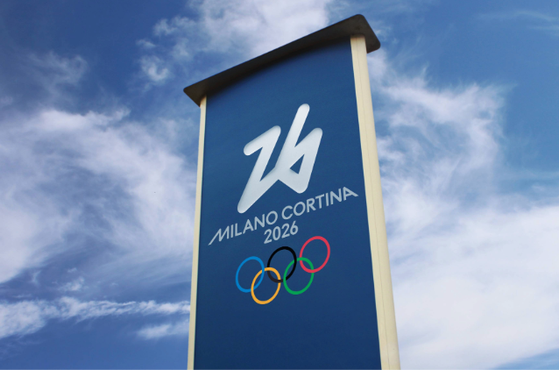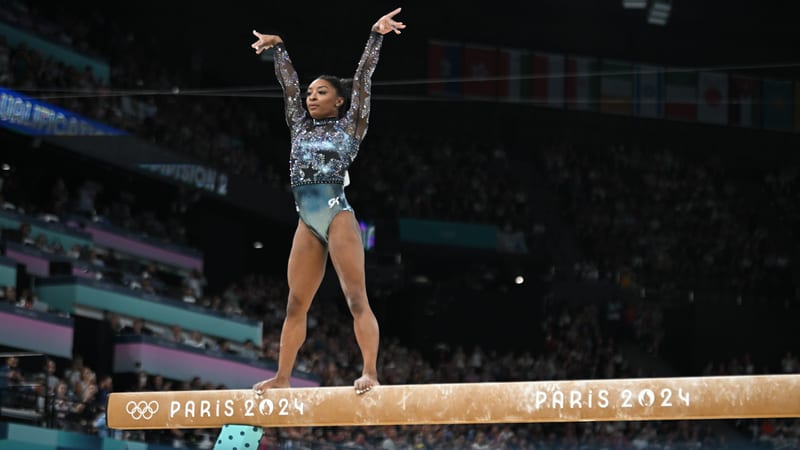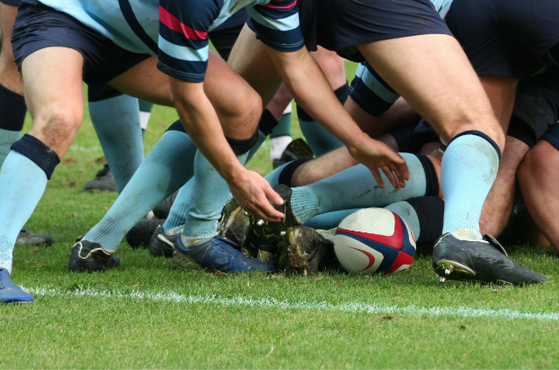Milano Cortina 2026 — key developments shaping the Winter Olympic & Paralympic Games

We explore how structural, environmental and organisational shifts are shaping the 2026 Winter Olympic and Paralympic Games.
Read more
We make the difference. Talk to us: 0333 004 4488 | hello@brabners.com
AuthorsAllana Edwards
10 min read

Paris 2024 set a milestone as the first Olympic Games to achieve full gender parity, with the International Olympic Committee distributing quota places equally to female and male athletes (50:50) for the first time since the modern Olympics began in 1896.
Here, Allana Edwards discusses the initiatives in place for female athletes at the Games and the importance of this milestone for women in sports.
Rather fittingly, it was also the Paris Games back in 1900 that first allowed women to compete. Yet of the 997 athletes who competed back then, just 22 were female. 124 years later, history has been made again as Paris 2024 became the first ever Olympic Games to achieve numerical gender parity. Of the 10,500 athletes estimated to have competed in Paris 2024, around 5,000 places were filled by women.
The medal events were also split more equally, with 152 medal events for the women, 157 medal events for the men and 20 mixed-gender medal events. Plus, 28 out of the 32 sports were fully gender-balanced, meaning that the same number of male and female athletes participated in those events.
Now that the Games have concluded, we can see the medal split between the genders as below. This table (created by Women In Sport), helps to track gender parity in terms of medals won — allowing us to see which nations are championing their female athletes.
| Country | Female medals | Male medals | Mixed | Total medals |
| United States | 67 | 52 | 7 | 126 |
| China | 50 | 34 | 7 | 91 |
| Australia | 30 | 20 | 3 | 53 |
| Great Britain | 28 | 30 | 7 | 65 |
| France | 23 | 38 | 3 | 64 |
| Netherlands | 21 | 11 | 2 | 34 |
| Japan | 18 | 23 | 4 | 45 |
| South Korea | 17 | 10 | 5 | 32 |
Paris 2024 also marked 40 years since women were first allowed to run the Olympic Marathon in 1984, which was won by America’s Joan Beniot in the Los Angeles Games. For the first time in Olympic history, Paris 2024 saw the women’s marathon conclude the Games. Taking place on the day of the Closing Ceremony in a slot that has always been taken by the men’s marathon, Paris 2024 flipped the events to showcase the women’s race last and bring more attention to female athletes. The women’s marathon was won by the Netherlands’ Sifan Hassan. Arguably the athlete of the games, Hassan won bronze in both the 5,000m and 10,000m before winning gold in the marathon. The last athlete to medal in all three events in one Olympics was Emil Zatopek in 1952.
It has been a long road since the 1900 Paris Olympics, but Paris 2024 is sure to stand as a testament to the strides made over the last century. The importance of this moment shouldn’t be overlooked.
IOC President Thomas Bach said: “We are about to celebrate one of the most important moments in the history of women at the Olympic Games and in sport overall.”
This sentiment is echoed by many athletes, including Track and Field star Gabby Thomas, who said: “It’s great to know the Olympics will have an equal number of men and women participating in Paris. It should have happened a long time ago, but I welcome the opportunity for more women to compete and have their chance to shine on the world stage. It has been an amazing time for women in sport overall and I hope people tune in to see some incredible performances that are sure to come at the Games.”
Paris 2024 changed the landscape for female Olympic athletes by implementing new equality initiatives that allowed it to become the most women-friendly Olympic Games to date.
More women and mothers participated in the Paris Games than ever before, including Egypt’s 26-year-old fencer Nada Hafez who competed in the Games while seven months pregnant.
Nine mothers competed in Paris 2024 for team GB (the most ever). Mathilda Hodgkins-Byrne was the first to win an Olympic medal for team GB, claiming bronze in the women’s double sculls. In total, seven of those mothers won medals for team GB.
Here are some of the key initiatives from Paris 2024 designed to better support women.
The Olympic Charter was updated in October 2023 to promote gender equality. It states that the IOC’s role in terms of gender equality is “to encourage and support the promotion of women in sport at all levels and in all structures with a view to implementing the principle of equality of men and women”.
Significant efforts were made to amend the event scheduling from previous Games to ensure that women’s and men’s events were scheduled fairly over the 16 days.
A gender-balanced schedule provides journalists with the opportunity to increase and better balance their coverage of women’s sports, making it easier for the next generation of female athletes to follow their role models.
IOC member Nawal El Moutawakel wrote: “We know that there are prime global broadcasting times at each edition of the Olympic Games. We have adjusted the schedule accordingly to ensure that a gender-balanced number of medal events and total competition hours take place during those time slots.”
The women’s marathon being moved to the closing event of the Paris Games is a perfect example of the changes that can be made to ensure a more gender balanced schedule.
Nancy Lee, IOC Gender Equality Advisor, said that: “Having both marathons on the final weekend is another example of how, when decision-makers apply a gender lens, progress can be achieved in treating women and men equally in sport. I have been putting that lens on sports since I was the Head of Sports for the Canadian Broadcasting Corporation. Now, working with the IOC, the OCOGs and the IFs, the changes I had hoped for are actually happening.”
However, not everyone was happy with the scheduling. The women’s sprint team in the track cycling had to complete three races (including the final) in one session, whereas the men’s final was held the day after their heats and semi-final. This afforded those in the final a greater recovery time than the women received.
Mothers competing in Paris 2024 could balance being a parent with their sport better than ever before, thanks to new inclusive measures.
Previously, children and families haven’t generally been allowed inside the Olympic Village, but this year — under new policies from the IOC and Paris 2024 — a nursey was set up in the non-residential area in the Olympic Village Plaza, which was open daily from 9am to 9pm. This was the first time that a nursery was set up in the Olympic village.
American Track and Field star Allyson Felix, who previously won 11 Olympic medals, told CBS that the launch of the nursery in the Olympic Village represents “a shift in the culture” around female athletes.
Paris 2024 also partnered with Pampers to offer athletes access to high quality nappies and wipes at the Olympic village nursery as well as special hotel rooms which were made available to athletes who were breastfeeding.
The world’s number one female rower and two-time Olympic champion Helen Glover, who has three children, has been outspoken about the difficulties of parenthood as an elite female athlete. She told the Radio Times that “many men in Team GB have children and it’s not spoken about because it doesn’t change anything. And it’s expected that their careers are longer than women’s careers. But hopefully the biggest thing about these Games is how many women competitors are coming back after having children.”
As highlighted in the ‘Factsheet: Women in the Olympic Movement’ document published earlier this year, the Olympics is still falling short in female representation away from the field of play. Statistics from Tokyo 2020 showed that only 13% of accredited coaches and 32% of accredited technical officials were women. This number is thought to have decreased in Paris.
According to The PowerHouse Project — a community committed to inspire and empower women and girls to get involved in sport — only 50% of head coaches in women’s basketball, 33% of head coaches in women’s football, 16% of head coaches in women’s hockey and 8% of head coaches in the rugby sevens were female.
Looking beyond participation only brings cause for further concern. Sports science has traditionally centred on males, resulting in deeply embedded systemic bias. In 2023, only 8% of sports science research was done exclusively on women. Given the drastic differences in physiologies and experiences, much more is needed to support women in sport.
So, while athlete participation in Paris 2024 was equal across the genders, these bleak statistics highlight the inequality still prevalent in the world of sports away from the field of play. Until we achieve more of an equal gendered split outside of athlete participation, we won’t have true gender equality.
Luckily, this is starting to be addressed and the UK Sports Institute is leading overdue research and starting conversations around menstrual cycles and their possible effects. Similarly, the IOC has invested in the ‘Women in Sport High-Performance Pathway’ (WISH) to help address the lack of parity in the coaching community. WISH is backed by $1m USD in Olympic Solidarity Funding and chaired by Professor Elizabeth Pike from the University of Hertfordshire. It’s a bespoke four-year programme designed to equip around 100 women to coach at elite levels and it has already engaged with 123 coaches from 60 countries and 22 sports.
The European Olympic Committee’s Gender Equality, Diversity and Inclusion Commission has plans to support future women coaches with elite-level ambitions by ensuring that they have the resources and conditions to thrive. It wants Europe to be a leading continent in gender equality by the Brisbane Games in 2032.
It’s great to see that the largest sporting event in the world has finally achieved gender equality in terms of numerical gender parity on the field of play.
Yet Paris 2024 shouldn’t be seen as the finish line — there’s still a long way to go to achieve absolute and sustainable equality in sport for women and girls from the elite right down to the grassroots level.
Several shocking revelations about the Games include the fact that six countries brought no women to compete in Paris, only 20% of coaches at Paris 2024 were female and women were controlled over what they could compete in, with many USA female track and field athletes were left feeling uncomfortable after Nike released revealing and impractical uniforms. American long-jumper Tara David-Woodhall commented on Instagram about the outfit release, saying: “Wait my hoo haa is gonna be out”. Algerian boxer Imane Khalif was subjected to intense media scrutiny in a shambolic gender row, despite passing the IOC gender test.
We must also continue to address the remaining gender gap in sports for all women, especially in terms of access to sport, female coaching and leadership positions.
We can be thankful that the IOC has paved the way through sport to contribute to a more equal and inclusive society and provided a great contribution to a more gender-equal sporting world. Hopefully this will inspire other governing bodies and sporting bodies to follow suit. The future of women’s sport has never looked more promising.
If you need advice on how to implement more gender-equal initiatives, policies and procedures or want to talk about how the changing landscape of women’s sport could affect your club or playing career, our specialist sports sector team is here to help.
We work closely with national governing bodies, international federations, elite sports clubs and large sports agencies both throughout the UK and around the world.
Talk to us by completing our contact form below.

Loading form...

We explore how structural, environmental and organisational shifts are shaping the 2026 Winter Olympic and Paralympic Games.
Read more

We examine the consequences of Palou’s defection and the wider lessons for businesses negotiating contracts with athletes or other high‑value individuals.
Read more

We explore how World Rugby’s newest reforms are reshaping the sport and what they mean for clubs and governing bodies ahead of the 2026 Six Nations.
Read more